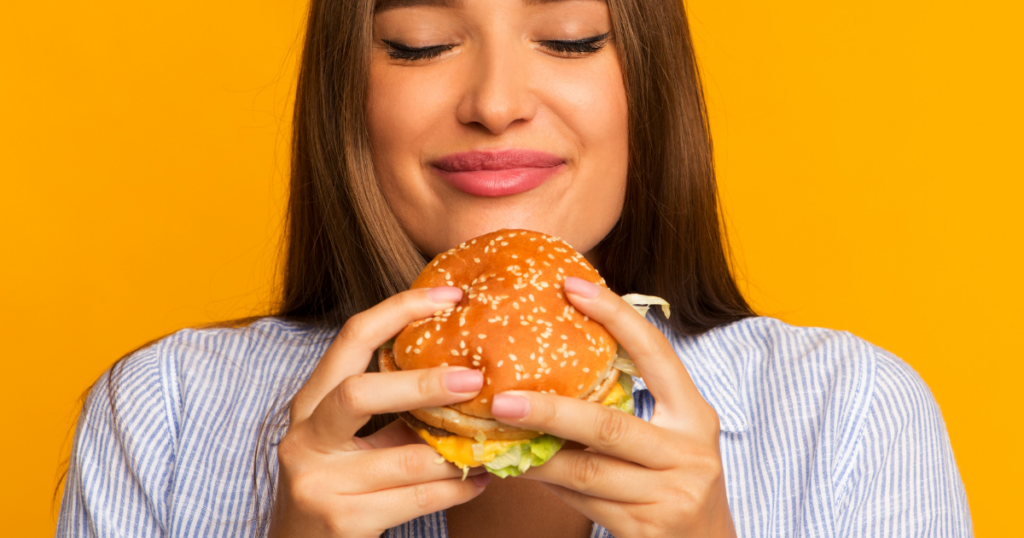
In the search for health and wellness, it’s easy to get drawn into the allure of quick-fix solutions and trendy diets that promise fast results. While the idea of losing weight fast or “resetting” your body might sound appealing, it’s important to understand what these popular diets truly entail and the impact they could have on your relationship with food and overall well-being. In today’s blog, we’re pulling back the curtain on fad diets, exploring why they are not as glamorous or beneficial as they may appear, so that you have the power to make informed decisions about your health! Let’s get started!
Table of Contents
What are fad diets?
Fad diets are diets that promise quick, dramatic results and often sound too good to be true. Picture this: you’re flipping through a magazine, or scrolling through social media, and you spot a headline promising quick, dramatic weight loss. This headline might be talking about a brand-new diet that everyone’s trying or an old diet that’s suddenly back in style. These diets often tell you that you can shed pounds quickly and easily, just by cutting out certain foods, eating at specific times, or drinking special juices. These kinds of diets, my friends, are what we call “fad diets”!
They can be very tempting, especially when you see dramatic before and after photos or read stories of people losing lots of weight in just a few weeks. But here’s the catch – these diets aren’t really about helping you to be healthier in the long run. Instead, they focus on quick, temporary results. The problem is, these results often don’t last, and the diet can even end up making you feel worse in the end (or worse, causing you to develop an eating disorder). You can learn more about the negative consequences of dieting and how to practice intuitive eating and mindful eating here. Now, let’s take a closer look at five popular examples of fad diets and our reasons for not recommending them.

Popular fad diets and why we don’t recommend them
#1: The Ketogenic (Keto) Diet
The ketogenic diet, originally intended for children suffering from epilepsy, drastically reduces carbohydrate intake, substituting it primarily with fats to put your body into a metabolic state called “ketosis”. It’s known for rapid weight loss, but at what cost? This approach promotes cutting out entire food groups such as grains, fruits, and some vegetables – a strategy we at Confidently NourishED do not endorse. Restrictive diets can lead to nutrient deficiencies, disordered eating, eating disorders and an unhealthy relationship with food.
The keto diet leaves little room for flexibility, a key factor when it comes to making realistic and long-term dietary changes. This inflexibility can turn simple activities like dining out or attending social events into stress-filled situations, causing anxiety over potential lack of suitable food choices. Imagine the stress of finding ‘keto-approved’ meals while on vacation or during a friend’s birthday celebration – not exactly a recipe for relaxation, right? Nutrition should be about balance, not deprivation!
#2: Detox/Cleansing Diets
Detox diets suggest that you can purge toxins from your body through restrictive eating and, sometimes, “cleansing” supplements like green juice or detox teas. The truth? Our bodies already have natural detoxification systems: the liver and kidneys. Detox plans are unnecessary and can be harmful, leading to nutrient deficiencies, fatigue, and disrupted metabolic function. When you dramatically limit your food intake, or rely heavily on liquids, your body might miss out on vital nutrients it needs to function optimally. Over time, this can lead to nutrient deficiencies and fatigue. It’s important to remember that no “cleanse” is a replacement for a balanced, nutritious diet.
#3: Intermittent Fasting (IF)
IF isn’t so much about what you eat but when. The diet involves cycling between periods of eating and fasting, which can range from 16-hour fasts to eating only during a specific 4-8 hour window (yikes!). While some claim benefits like weight loss and improved metabolic health, the risk here is the potential to trigger disordered eating patterns, eating disorders, binge eating, and overeating. Like the keto diet, this diet can really interfere with social life. Plus, extended periods without food can lead to low energy, poor mood, reduced concentration, and heightened anxiety around meal times.
At Confidently NourishED, we guide our clients to honor their hunger and fullness cues and eat consistently, which fosters a sense of freedom and ease around eating. Eating consistently also helps to regulate our blood sugar levels, improves our energy levels, reduces cravings, improves our mood, etc!
#4: Paleolithic (Paleo) Diet
Inspired by our hunter-gatherer ancestors, the Paleo diet encourages eating lean meats, fish, fruits, vegetables, nuts, and seeds, while excluding dairy, grains, and all processed foods *gasp*. While promoting whole foods is beneficial, the exclusion of certain food groups could lead to nutritional deficiencies, disordered eating, and unsustainability. At Confidently NourishED, we advocate for balanced eating practices rather than unnecessary elimination.
#5: Weight Watchers (WW)
Weight Watchers, now known as WW, has been a household name in the weight loss world for decades. This program assigns a point value to every food and beverage, based on their nutritional content. You’re allotted a certain number of points per day, along with a weekly bonus. The idea is to stay within your point budget while eating a balanced diet.
However, there are a few reasons why this approach may not be the most effective in the long term. Assigning points to foods can inadvertently create a hierarchy, suggesting that some foods are ‘good’ or ‘bad’ based on their point value. This can foster an unhealthy mindset, where food decisions become more about points than actual hunger, fullness, cravings, or nutritional needs. It can also prompt feelings of guilt or shame if you “overeat” your points, possibly leading to disordered eating or an eating disorder.
At Confidently NourishED, we don’t put certain foods on pedestals. Instead, we encourage a balanced approach to eating. We guide our clients in adding nourishing foods to their existing eating patterns and focusing on the diversity of their diet. We believe in honoring your cravings and normalizing all foods, as this is crucial in reducing behaviors such as binge eating.
Summary

Instead of following restrictive, unsatisfying diets that can damage your relationship with food, we invite you to explore a healthier, happier approach.
Ready to begin your journey to food freedom? Request an appointment with one of our dedicated dietitians today and start transforming your relationship with food from the inside out. Your nourishing journey awaits!






0 Comments